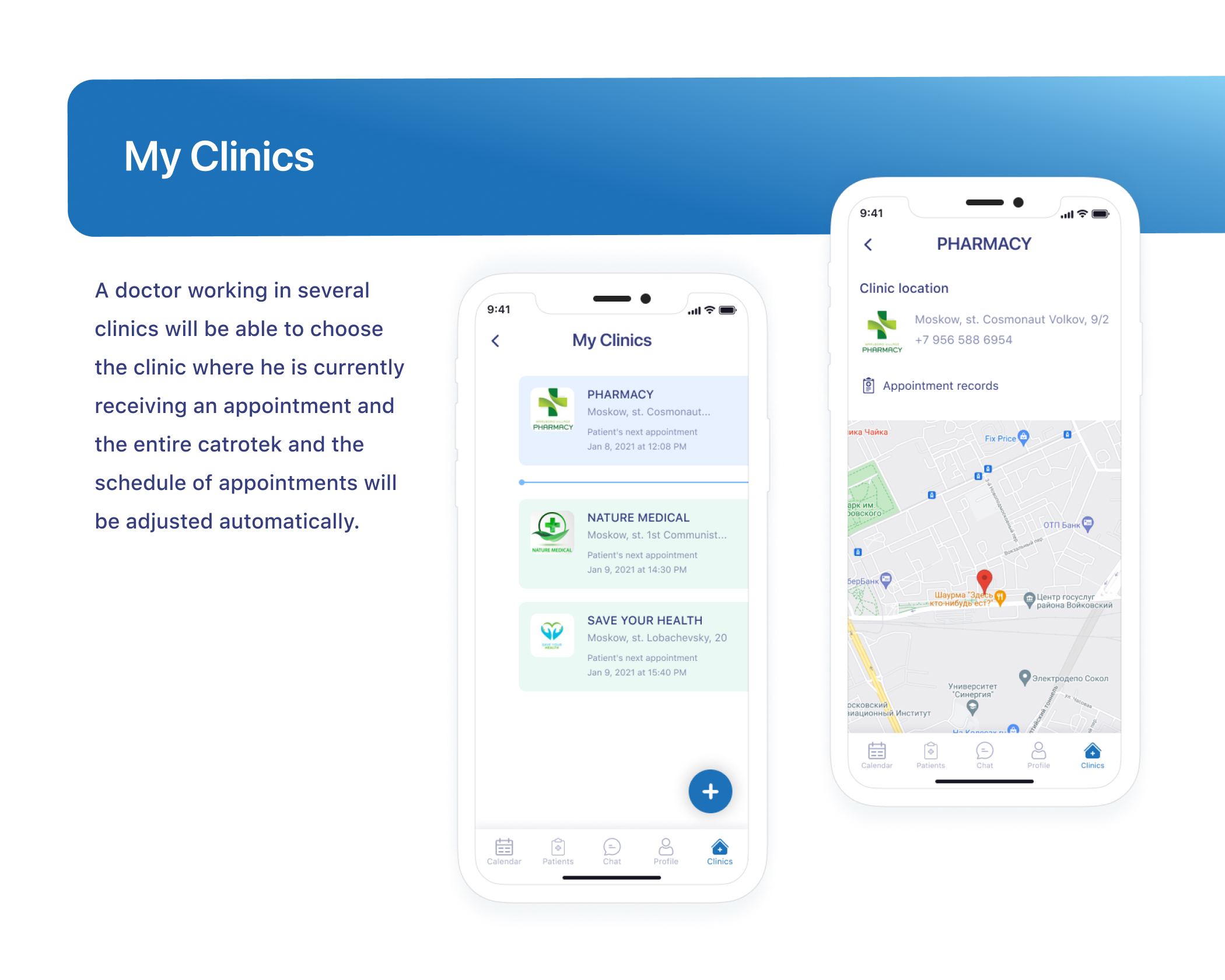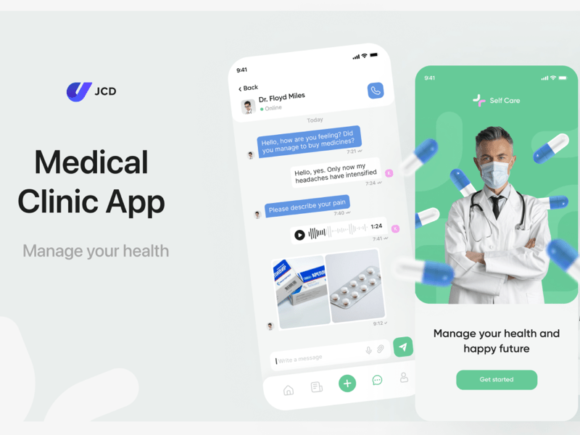The Future of Medical Care: Why Clinics Required a Mobile Application Today
As the health care landscape proceeds to advance, clinics encounter placing stress to adjust to client expectations for better comfort and accessibility. The combination of mobile applications can function as a crucial method for improving patient engagement and streamlining operations. By leveraging modern technology to improve communication and offer vital services, facilities not just address existing needs yet likewise position themselves for future success. The ramifications of this shift expand beyond simple operational efficiency; they can redefine patient relationships and care delivery in profound ways. What might this transformation look like for both individuals and centers?
Altering Person Assumptions
As the landscape of medical care progresses, patient assumptions are undertaking a considerable makeover. Today's people are progressively seeking convenience, access, and customized treatment. With the surge of technology, specifically mobile applications, people currently expect a smooth assimilation of healthcare solutions right into their day-to-days live. They want the capacity to handle consultations, access clinical records, and communicate with doctor via their mobile phones, showing a shift in the direction of a much more aggressive technique to health and wellness monitoring.
Furthermore, people are coming to be much more notified and encouraged, often investigating therapies and conditions online prior to examinations. This heightened understanding is combined with a need for openness in healthcare processes, consisting of expense estimates and treatment choices. Because of this, carriers are compelled to adjust by embracing digital devices that improve the patient experience.
The assumption for prompt and reliable communication has never been greater, with lots of people considering responsiveness a critical part of top quality care. mobile app for clinics. In this advancing landscape, healthcare companies have to identify these transforming assumptions and take advantage of mobile applications to cultivate an extra patient-centric method, guaranteeing that they not just meet however go beyond the criteria set by today's enlightened consumers
Enhancing Patient Interaction

Mobile applications promote interaction between clients and doctor, making it possible for real-time appointment scheduling, pointers for medicine adherence, and direct messaging functions. These functionalities not just improve convenience however likewise construct a sense of accountability among people. Mobile apps can supply educational content customized to specific needs, assisting patients better recognize their conditions and therapy choices.
The assimilation of gamification aspects within health care applications can additionally encourage individuals to involve in healthy actions, strengthening favorable way of living changes. Ultimately, improving patient interaction through mobile applications leads to enhanced health and wellness results, greater client fulfillment, and a much more collaborative medical care experience.
Enhancing Clinic Operations
Streamlining center procedures is necessary for boosting process effectiveness and maximizing patient care. The implementation of mobile applications can considerably minimize administrative burdens, permitting medical care suppliers to concentrate much more on patient interactions. By automating appointment scheduling, individual check-ins, and invoicing processes, facilities can minimize wait times and enhance general operational efficiency.
Mobile apps also promote real-time accessibility to person records, allowing healthcare experts to make educated decisions promptly. This immediacy not only enhances the top quality of care however also minimizes the likelihood of errors associated with misplaced or outdated details. Leveraging mobile modern technology sustains a more organized strategy to handling individual follow-ups and treatment strategies, making sure that no crucial actions are forgotten.
Additionally, mobile applications can enhance inventory management by giving clinics with devices to keep an eye on materials and medications efficiently. This permits timely replenishment and helps stay clear like this of disruptions in patient care due to equip scarcities. By incorporating these capabilities into their day-to-day procedures, facilities can produce a much more efficient and natural atmosphere, inevitably resulting in boosted individual results and satisfaction. Accepting mobile innovation is not simply a fad; it is a needed advancement in the healthcare landscape.
Improving Communication Channels
Efficient interaction is often mentioned as a keystone of high quality health care shipment. In today's hectic clinical setting, mobile applications can substantially enhance communication channels between centers, patients, and doctor. By integrating mobile apps right into their procedures, clinics can help with real-time interactions, guaranteeing that individuals obtain timely info concerning their appointments, test results, and treatment plans.
Mobile apps likewise encourage people to communicate straight with their healthcare groups via safe and secure messaging features. This direct line of communication cultivates a feeling of interaction and enables immediate explanation of problems, which can bring about much better adherence to treatment procedures. In addition, push alerts can remind people of upcoming consultations or drug routines, reducing no-show rates and enhancing total wellness end results.

Staying Competitive in Health Care
In a swiftly progressing medical care landscape, organizations have to prioritize technology and adaptability to maintain an one-upmanship. The assimilation of mobile Full Report applications into medical care services is no more optional; it is essential for clinics intending to improve client involvement, simplify procedures, and improve total solution delivery.
As clients significantly depend on digital systems for health administration, facilities that stop working to embrace mobile technology threat dropping behind. A well-designed mobile application can provide attributes such as visit scheduling, telemedicine appointments, and accessibility to medical records, offering patients with convenience and fostering commitment.

Rivals are also purchasing mobile services, so remaining ahead calls for constant enhancement and staying informed regarding technical advancements. Centers need to not only carry out mobile applications yet additionally participate in normal updates and improvements. Ultimately, the successful integration of mobile technology will differentiate forward-thinking health care companies and set the criteria for patient-centric treatment in an electronic globe.
Final Thought
In final thought, the assimilation of mobile applications in facilities is critical to address the progressing landscape of client assumptions. Inevitably, the calculated implementation of mobile applications represents a crucial step toward providing easily accessible and customized healthcare, consequently satisfying the demands of today's empowered people.
Ultimately, enhancing patient involvement via mobile applications leads to enhanced health and wellness results, greater person fulfillment, and a much more collective healthcare experience.Mobile apps also facilitate real-time access to patient records, enabling medical care experts to make informed decisions quickly. In today's fast-paced clinical setting, mobile applications can considerably enhance communication channels in between clinics, individuals, and health care companies.Mobile applications likewise equip people to interact straight with their health care teams via safe and Get the facts secure messaging features. Ultimately, the strategic application of mobile apps stands for an essential step towards supplying customized and available health care, thereby meeting the requirements of today's empowered individuals.
Comments on “Improve Workflow: Why Your Clinic Requirements a Mobile App for Clinics Now”